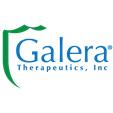Exhibit 99.1

Galera Submits New Drug Application for Avasopasem for Severe Oral Mucositis
NDA based on two positive randomized, double-blinded, placebo-controlled trials which enrolled a total of 678 patients
MALVERN, Pa. – December 12, 2022 – Galera Therapeutics, Inc. (Nasdaq: GRTX), a clinical-stage biopharmaceutical company focused on developing and commercializing a pipeline of novel, proprietary therapeutics that have the potential to transform radiotherapy in cancer, today announced the submission of its New Drug Application (NDA) to the U.S. Food and Drug Administration (FDA) for avasopasem for radiotherapy-induced severe oral mucositis (SOM) in patients with head and neck cancer (HNC) undergoing standard-of-care treatment. The FDA has granted Fast Track and Breakthrough Therapy designations to avasopasem for the reduction of SOM induced by radiotherapy. SOM is characterized by the inability to eat solid food or drink liquids and may require the surgical placement of feeding tubes to maintain nutrition and hydration. There are currently no FDA-approved drugs to reduce SOM for these patients.
“With submission of this NDA, we achieved an important milestone towards our goal of transforming radiotherapy, potentially bringing patients with HNC the first approved drug for SOM and relief from its tremendous burden,” said Mel Sorensen, M.D., President and Chief Executive Officer of Galera Therapeutics. “Approximately 42,000 patients with HNC undergo standard-of-care radiotherapy every year in the U.S. and are at risk of developing SOM. Our two rigorous, placebo-controlled trials which enrolled nearly 700 patients give us confidence that avasopasem has the potential to provide meaningful clinical benefit for patients by reducing SOM incidence, days, and severity while also delaying its onset. We look forward to working closely with the FDA during the review process.”
Dr. Sorensen continued, “Further, the reduction in cisplatin-related chronic kidney disease in patients treated with avasopasem reported in October may offer added clinical benefit to the large number of patients with HNC who receive cisplatin with their radiotherapy.”
The NDA is supported by the randomized, double-blinded, placebo-controlled Phase 3 ROMAN and Phase 2b GT-201 trials which enrolled a total of 678 patients. Results from the 455-patient ROMAN trial demonstrated a clinically meaningful reduction in patients’ SOM burden across multiple endpoints, with statistically significant reductions on the primary endpoint of incidence of SOM and the secondary endpoint of number of days of SOM, more than halving the median number of days a patient suffered SOM. Avasopasem also showed clinically meaningful reductions in severity of SOM (Grade 4 incidence) compared to placebo. Exploratory analyses, such as time to SOM onset and SOM incidence at various landmarks of radiotherapy delivered, further demonstrated the clinical benefit of avasopasem in reducing the burden of SOM. Avasopasem was generally well tolerated compared to placebo. Overall, the adverse event (AE) incidences noted in the clinical trials were consistent with the interpretation that avasopasem was not associated with a clinically meaningful increase in the AE profile expected for the target patient population receiving standard-of-care chemoradiation therapy. In addition, a prospectively defined exploratory analysis looking at renal function through 12 months follow-up showed that avasopasem reduced cisplatin-induced chronic kidney disease by 50%.
